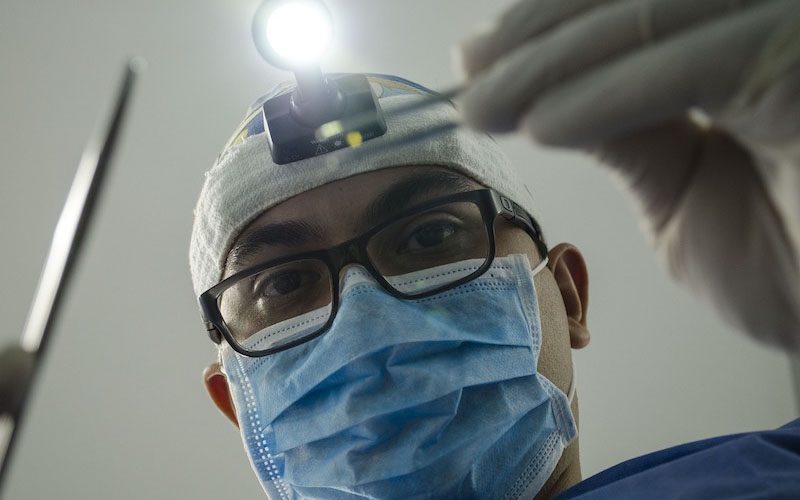Life is an endless round of appointments, work, friend and family obligations, and sleep. Amidst the cycle, it can be difficult to keep up with everything we have to do, and often, small but important things may fall by the wayside—including regular dental checks.

(Movidagrafica / pixabay)
There are many reasons why we might pass over dentist visits, ranging from lack of insurance to dentophobia (fear of dentists), but there are many more reasons why keeping up with them is much more important:
- A proper cleaning by a dentist can remove any build-up of plaque that daily brushing can miss
- Checks for cavities or other reparable issues can be handled quickly, preventing dental health from worsening
- Checks for medical conditions like cancer or gum disease can help find issues before they become major problems
With that in mind, here are a few things you should remember when you arrange a visit to a family dentist in Utah after a long absence.
Preparation for Your First Visit
Once you have your appointment booked, it pays to prepare a couple of things for the day. Having an idea of any particular issues you have experienced during your absence will help your dentist to be able to pinpoint any underlying problems they should focus on first. These issues may include:
- Any prominent tooth pain
- Looseness of teeth
- Bleeding while brushing
- Gum inflammation
Also, a detailed history of your dental records will make your dentist aware of any side effects that could arise in the future or that need to be considered before pain management or treatment.
If you have any particular problems with being at the dentist’s office – such as dentophobia – take someone along for emotional support. If you are unsure about your dental office, you can always drop in for an in-person visit to get yourself used to it before your appointment.
With everything in line, it is time to go to your first appointment.
Your First Dental Check
Your first appointment with your new dentist will be the longest one. The dentist will collect all the information they will need to be able to treat you appropriately.
First off, you’ll need to discuss your dental history to make your dentist aware of any underlying conditions. The dental team will then perform a thorough examination of your teeth. This includes checking:
- Every tooth individually
- Your gums and any gaps between them
- Your current or old cavities
- Any previous dental work you may have undergone.
Then, they will take a series of X-ray images of your mouth from all angles. This is crucial to analyze the health of your jaws, bones, teeth, and gums. Additionally, X-rays help to identify any invisible issues and track your progress as you go for regular visits. All that information will help the dental team determine whether you have any issues or concerns.
The dental team also takes any signs of potential diseases or other problems like oral cancer into consideration. This affects the length of time between your visits and whether you need to return for any other specific examinations.
Finally, your dental hygienist will give your mouth a thorough clean. Don’t be offended; even if you brush or floss daily, it’s not uncommon to miss a few areas. The hygienist will get into those hard-to-reach places and remove any excess plaque build-up. They will also provide you with suggestions and tips to help you in the future with your daily dental care routine.
After The Checkup
After the checkup, your dentist will help you build a personalized action plan to improve the health of your teeth. This may include suggestions such as what particular toothpaste or brushes to use, how to floss for maximum effectiveness, and maybe even some dietary changes that you can make to improve your overall dental health.
If any larger issues are found, such as signs of gum disease or cavities, then you’ll need to schedule further appointments to allow for treatment.
Regardless of the next steps, there are a few things you should keep in mind that will occur as a result of this thorough examination of your mouth.
For a day or two, your gums may be sore, and your teeth may feel rougher than you are used to due to the removal of any excess plaque. It is also common that some minor bleeding may occur, and your gums may become inflamed.
All of this is perfectly natural and not a point of concern. It will benefit you to steer clear of particularly hard foods or fizzy drinks, which may hurt a little to consume. You should also make sure to use a soft bristle toothbrush.
Conclusion
With all the hard work done, you will now have a regular schedule of dental visits ahead, each much easier than the first.
Just keep in mind a few handy tips, and you’ll be able to make your experience of visiting the dentist a pleasant one:
- Listen to your dentists’ advice – Years of training and education back up every suggestion a dentist makes, so following any advice they give you will always ensure that your teeth stay healthy and clean.
- Keep up your regular visits – Compliance is key. Even if you haven’t been faithful with dental visits in the past, today’s a new day. Start fresh with new resolve.
- Err on the side of caution – Rather than just letting any pains or problems fix themselves, if you have any reason to suspect there is something wrong, book a new appointment and have a professional check your teeth.
If you’ve yet to make an appointment, contact Felt Family Dentistry to schedule a visit. Our West Haven and Layton dentists regularly exceed people’s expectations and will do the same for you and your family.
